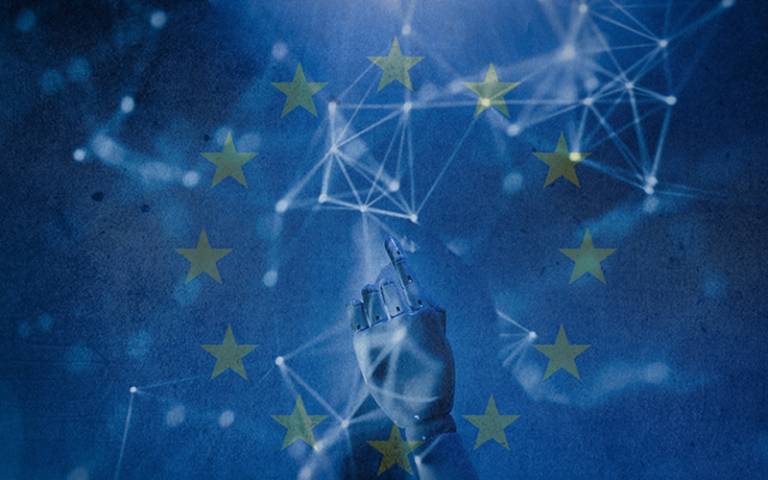Online | European Regulation of AI Systems
09 November 2021, 5:00 pm–7:00 pm

UCL Centre for Ethics and Law virtual event
Event Information
Open to
- All
Organiser
-
UCL Laws Events
About this event
The European Commission proposed a draft Regulation in April 2021, in order to set standards for the regulation of Artificial Intelligence (AI) systems across the board, in particular high-risk systems. The development of machine learning technologies and automated decision-making in a black box have caused much debate in many academic disciplines as well as in policy and practice.
The UCL Centre for Ethics and Law is proud to host a discussion on regulating AI systems, based on recent work published by Dr Michael Veale. A critical discussion of the topical issues and the appropriateness of a general regulatory framework for AI systems will be undertaken by Michael and a panel of discussants from the disciplines of Law and Information Technology.
Chair: Professor Iris Chiu
Speakers:
- Dr Michael Veale (UCL)
- Professor Ronald Leenes (Tilburg University)
- Dr Catalina Goanta (Maastricht University)
- Dr Reuben Binns (University of Oxford)
Watch the video directly on our YouTube Channel or view it below
About the Speakers:
Dr Michael Veale, Associate Professor of Law, Faculty of Laws, UCL
Michael's research sits at the intersections of emerging digital technologies, Internet and data law, technology policy and human¬¬–computer interaction. His work has previously examined areas such as how the law applies to machine learning techniques in practice, how civil servants grapple with issues of algorithmic discrimination, how data protection law copes with new data processing practices, and the use and limitations of data rights. He is currently working on areas including the compliance of online tracking and advertising systems such as 'real-time bidding' with data protection law, the legal tensions caused by encrypted data analysis and business-side privacy-enhancing technologies (PETs), and the implications of synthetic content (such as so-called 'deep fakes').
Professor Ronald Leenes, Full Professor, Tilburg University
Ronald is director of the Tilburg Institute for Law, Technology, and Society and full professor in regulation by technology at the Tilburg Institute for Law, Technology, and Society (Tilburg University).His primary research interests are techno-regulation, conceptual issues with respect to privacy, data protection in practice, data analytics, robotics, AI and human enhancement. Currently his work focuses on control (aka techno-regulation, accountability and transparency) in autonomous vehicles and on regulatory failure in technology regulation.
Dr Catalina Goanta, Assistant Professor, Maastricht University
Catalina is an Assistant Professor in the Faculty of Law, Maastricht University. She received her LL.B. from the Faculty of Law, University of Bucharest. She then completed an LL.M. at the Faculty of Law at Maastricht University, specializing in European comparative and international law, and then obtained an M.Sc. in public policy and human development from the United Nations University-MERIT Maastricht Graduate School of Governance. Catalina has given workshops on various topics of consumer contract law, European law, and law and technology at conferences in Edinburgh, Shanghai, Sibiu, Pavia, and Sarajevo, among others. Moreover, she has participated in two previous grants from the European Commission aiming to map the implementation of European Union law by Member States (‘An inventory of legal form and shareholding requirements in the EU services sector and their economic assessment’ and ‘Exploratory study of consumer issues in the sharing economy’), where she drafted the Romanian national reports. Catalina is a Transatlantic Technology Law Forum Fellow as of 2017.
Dr Reuben Binns
Reuben is an Associate Professor of Human Centred Computing at the University of Oxford, working between computer science, law, and philosophy, focusing on data protection, machine learning, and the regulation of and by technology. Between 2018-2020, he was a Postdoctoral Research Fellow in AI at the Information Commissioner's Office, addressing AI / ML and data protection. He joined the Department of Computer Science at the University of Oxford as a postdoctoral researcher in 2015. He received his Ph.D. in Web Science from The University of Southampton in 2015.
 Close
Close

